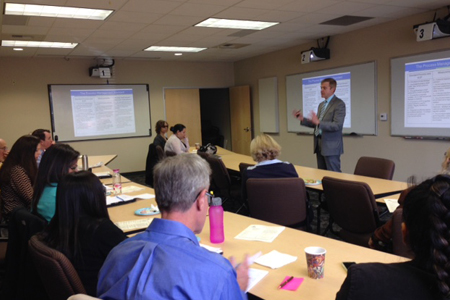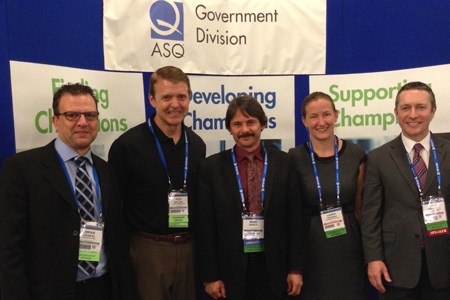
When you say the word civility, you are describing perhaps the most essential component of a peaceful, productive society for everyone everywhere. And while civility is something that is perhaps taught by parents and hopefully embodied by most of us in most situations, it is government that writes down the rules for civil conduct (in laws) and that enforces those through police and the courts. Civility (and good government) defines and protects the private property of individuals, maintains the infrastructure necessary to support businesses or to work at our jobs, maintains public health and food safety, enables commerce, prevents abuse of people or their rights, protects the safety of nations and creates a means to pay for it all! The civil systems of government mostly do (and should) create the institutions that unite people and those that resolve the issues that divide them.
Quality in government is focused on making sure that government – our institutions of civility – are a good investment, and that we are getting those services at a reasonable cost. All of us in the quality field can be proud of what we do, in ensuring a civil society, and in enabling the smooth and fair system of commerce from which we earn our living and obtain the goods and services on which we depend. In government we can also commend our role in maintaining an environment that is healthy and safe, and that supports the growth and development of our next generation.
But there are many aspects of our quality profession that go much deeper in building and maintaining our civil society, both in its operations and in our culture. These same tenets of quality support many of the beliefs and expectations we ask for in individual organizations.
One that is fundamental to everything, that is often overlooked, is the establishment of objective truth – truth based on a shared factual premise. Getting a group, whether a work team, a government organization, a legislative body or a society, to agree on a common objective, which is defined in clear, objective, and measurable terms, is the nexus of quality. Doing so means welcoming challenge and discussion, so that we can do what the Baldrige Criteria describes as management by fact. When we have a shared goal that we define the same way, a group can then agree to follow a logical path to see how well they are achieving it and agree on possible causes of gaps in performance (and what to do about them). That same principle is true whether we are talking about causes of delay in processing applications or causes of war. Logical and peaceful discussion can only begin when we agree on objective truth.
In quality, the establishment of objective truth is based on a group defining a goal or a requirement and using objective terms in that description so that achieving it can then be measured. As Dr. Deming said, “in God we trust, all others bring data.” So we can see that having objective data is just a part of objective truth, and part of management by fact – but this is only helpful when we share that objective truth.
In this light it is important to recognize that in our current political environment we are asked to make decisions about the definition of insurrection and conspiracy, whether those are crimes, and whether they should be punished. All of these questions require a decision about objective truth. Our civil society depends on shared objective truth, and we as quality professionals can and should help that discussion proceed to a defined end. The sad truth is that when objective truth breaks down the only way to settle differences is by violence. When we cannot obtain agreement on shared principles and a logical path of causation to achieve those principles, then the only way to settle differences is by violence. Either scenario is the opposite of civility, and a direct barrier to the use of our laws, and of quality practice.
That is one reason that Government Division has established the Center for Electoral Quality and Integrity (CEQI), so that we can establish an objective truth about a valid election, and hopefully certify election departments as carrying out valid elections. This is described by our CEQI Chair, Kerry Bass, as “easy to vote and hard to cheat”. The importance of this designation is paramount as part of the objective truth of our government, at all levels. If you think about it, the only difference between democratic government and fascism is that in a democracy we know there is consent of the governed, and the validity of our elections is part of the objective truth.
Let us never forget that one of the downfalls of any kind of fascist or “strong man” government is the rise of corruption (the opposite of efficiency and effectiveness), and one of the distinguishing factors of healthy free enterprise and democracy is that both commerce and government are ruled by law, justice for all, and open-ness. The same principles of justice and open-ness are reflected as empowerment and engagement in organizations, and that provides the foundation of challenge, continuous improvement and best practices. These are important things to remember in current times, and reasons to be very proud of our role in quality practice.




